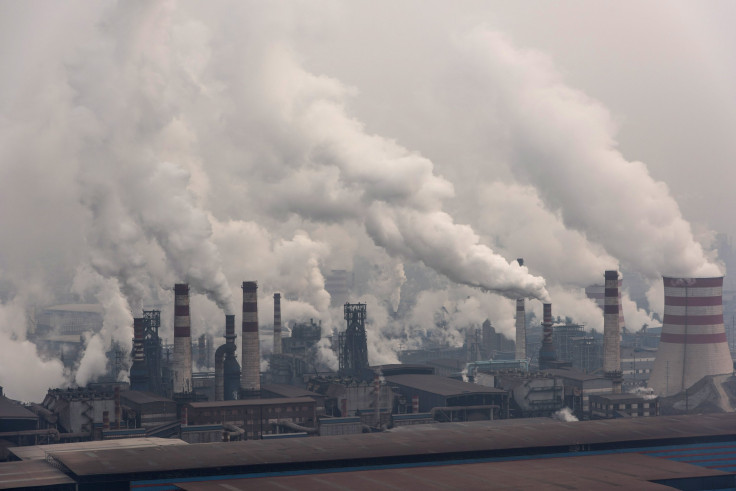China’s ‘Historic’ Drop In Coal Use Did Not Lead To Dip In Carbon Emissions, Study Says

Earlier this year, China — the world’s largest emitter of carbon dioxide — announced its coal consumption had, compared to 2014, dropped 3.7 percent last year. The news of the drop, which followed a 2.9 percent dip in 2014, was widely welcomed as a significant step in the country’s transition toward cleaner, greener sources of energy.
As a result of this transition, the International Energy Agency estimates that China’s carbon emissions declined by 1.5 percent in 2014, marking the first drop since 1999.
However, a new study published in the journal Nature Climate Change has cast doubts over these claims, citing uncertainties in and periodic revisions of official Chinese statistics.
“It is too early to conclude that Chinese carbon dioxide emissions have fallen in 2014 or 2015,” the Oslo-based Centre for International Climate and Environmental Research (Cicero), which conducted the study, said in a statement, adding that “headlines about falling emissions may be misinterpreting the numbers.”
According to the study, this misrepresentation is primarily due to the fact that the official estimates are based on coal consumption measured by weight, rather than focusing on the energy content of the coal being consumed.
“Carbon dioxide emissions depend mainly on the energy content of the coal. China is consuming better quality coal, meaning that emissions decrease less than the amount of coal burnt,” co-author Robbie Andrew, a senior researcher at Cicero, said in the statement.
If this criterion is taken into account, the study estimates that China’s fossil fuel dependent carbon dioxide emissions may, in reality, have increased by 0.8 percent in 2014, and dropped by just 0.1 percent in 2015.
“Given uncertainties in the preliminary statistics, it is not possible to conclude whether Chinese carbon dioxide emissions went up or down in 2015,” co-author Glen Peters said in the statement.
The study is likely to call into question the findings of a recent paper, co-authored by the renowned British economist and climate action advocate Nicholas Stern, which stated that China's carbon emissions may have peaked in 2014 — years ahead of its stated deadline of 2030.
“It is enticing to be the first to jump on the latest Chinese statistics and report any good news. We find that preliminary energy statistics from China are unreliable, and the most easily available data is often insufficient for estimating emissions,” lead author Jan Ivar Korsbakken said in the statement. “We may have a better picture of 2015 emissions when China publishes more complete statistics later this year. Yet the full picture may not emerge until after the next major revisions, in 2019 or 2020."
© Copyright IBTimes 2025. All rights reserved.






















